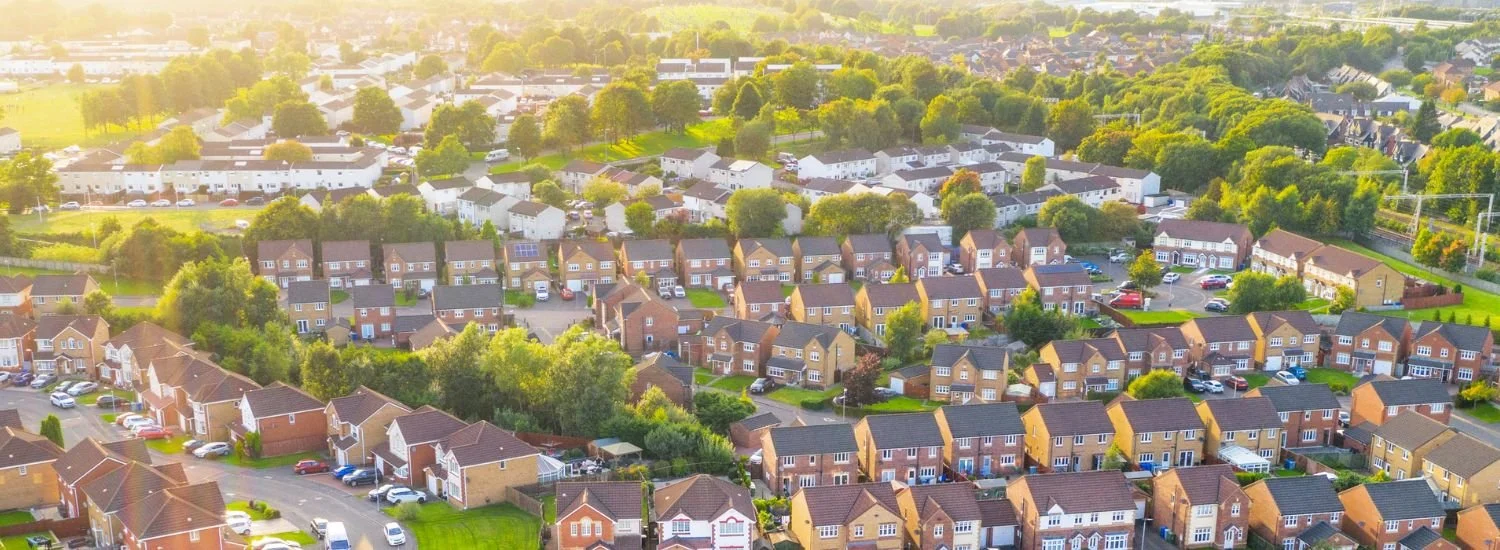Why You Need a Building Surveyor When Purchasing a Property
Buying a property is one of the most significant investments most people make in their lifetime. Whether you're a first-time buyer or an experienced homeowner, understanding the true condition of a property is essential. This is where a Building Surveyor comes in. In this blog, we’ll explore what a building surveyor does, the importance of their role, and how their expertise can save you time, money, and stress in the long run.
What is a Building Surveyor?
A Building Surveyor is a qualified professional who assesses the condition of buildings. They inspect properties to identify structural issues, potential defects, and areas requiring maintenance or repair. Building surveyors are regulated by the Royal Institution of Chartered Surveyors (RICS), ensuring they adhere to high standards of professionalism and ethics.
Their expertise is invaluable when buying a home, selling a property, or undertaking major renovations. They provide detailed reports that highlight any issues with a property, allowing you to make informed decisions.
Why Hire a Building Surveyor?
1. Identify Structural Issues
A building surveyor examines the structural integrity of a property. They can identify problems such as:
Subsidence
Cracks in walls
Damp or mould
Roof damage
Early detection of these issues can save you thousands in repair costs and help you avoid purchasing a property with hidden problems.
2. Negotiate a Better Deal
If a survey reveals significant issues, you can use this information to renegotiate the purchase price. A detailed survey report provides solid evidence that supports your case for a price reduction or repairs before completion.
3. Ensure Regulatory Compliance
Building surveyors ensure that a property complies with local building regulations. They can identify unapproved extensions or alterations that may lead to costly legal issues down the line.
4. Plan for Future Maintenance
A building survey provides insights into areas that may require maintenance in the future. This helps you budget effectively and prevents unpleasant surprises after moving in.
What Does a Building Surveyor Do?
A Building Surveyor carries out several tasks, depending on the type of survey and the property being inspected. Some of their responsibilities include:
1. Visual Inspection
Surveyors conduct a thorough visual inspection of the property, covering the:
Roof
Walls
Windows and doors
Floors and ceilings
Loft space (if accessible)
Foundations (if visible)
2. Using Advanced Tools
Many building surveyors use advanced tools to enhance their inspections, such as:
Moisture meters to detect dampness
Telescopic poles with cameras to inspect hard-to-reach areas like chimneys
Drones for aerial inspections of roofs and large properties
3. Providing a Detailed Report
After the inspection, the surveyor provides a comprehensive report. This document includes:
A summary of the property’s condition
Any defects or areas of concern
Recommendations for repairs or further investigation
Estimated costs for significant repairs
Types of Surveys Offered by Building Surveyors
Building surveyors offer different types of surveys tailored to the needs of the buyer and the property.
1. Condition Report
Suitable for new or well-maintained properties
Provides a brief overview of the property’s condition
Highlights urgent issues but doesn’t include detailed advice
2. Homebuyer Report
Ideal for standard properties in reasonable condition
Includes information on structural issues, damp, and drainage
Offers advice on necessary repairs
3. Building Survey
The most comprehensive option, recommended for older or unusual properties
Covers structural integrity, potential defects, and future maintenance needs
Offers detailed advice and repair estimates
Common Issues Found by Building Surveyors
Building surveyors frequently uncover issues that are not immediately apparent to buyers. Here are some of the most common problems:
1. Damp and Mould
Damp can cause structural damage and health problems. Surveyors use moisture meters to detect dampness and identify its source.
2. Roof Damage
Broken tiles, sagging roofs, and leaking gutters are common issues that can lead to water damage if not addressed promptly.
3. Subsidence
Subsidence occurs when the ground beneath a property shifts, causing structural instability. This is a costly issue to fix and should be identified early.
4. Electrical Issues
Outdated or unsafe wiring is a common concern, particularly in older properties.
5. Plumbing Problems
Leaking pipes, poor drainage, and outdated plumbing systems can lead to significant repair costs.
Choosing the Right Building Surveyor
When selecting a building surveyor, ensure they are:
RICS-Registered: This guarantees they adhere to professional standards.
Experienced: Look for surveyors with experience in the type of property you are purchasing.
Local: A surveyor familiar with the area will have better insights into common property issues.
At DAW Surveyors, we specialise in RICS Level 3 Building Surveys for properties across Surrey, Hampshire, and West Sussex. Our experienced team uses advanced tools, including drone technology, to provide thorough and accurate reports.
How to Avoid Buying a Property with Issues
1. Get a Survey
This is the most effective way to identify potential problems before committing to a purchase.
2. Research the Property
Look into the property’s history, including previous repairs and local environmental factors.
3. Inspect the Property Yourself
While a professional survey is essential, a personal inspection can help you identify obvious issues.
4. Work with Trusted Professionals
Engage reputable surveyors, solicitors, and estate agents to guide you through the buying process.
The Cost of Not Hiring a Building Surveyor
Skipping a building survey to save money can lead to costly mistakes. Hidden issues such as subsidence, damp, or structural defects can cost tens of thousands of pounds to fix. A building survey is a small investment compared to the potential repair costs of undetected problems.
Conclusion
Hiring a Building Surveyor is a crucial step in the property-buying process. Their expertise ensures you make informed decisions, avoid costly mistakes, and have peace of mind about your investment.
If you’re purchasing a property in Surrey, Hampshire, or West Sussex, consider DAW Surveyors for your Level 3 RICS Building Survey. Our experienced team is dedicated to providing comprehensive and reliable property assessments to help you move forward with confidence.

